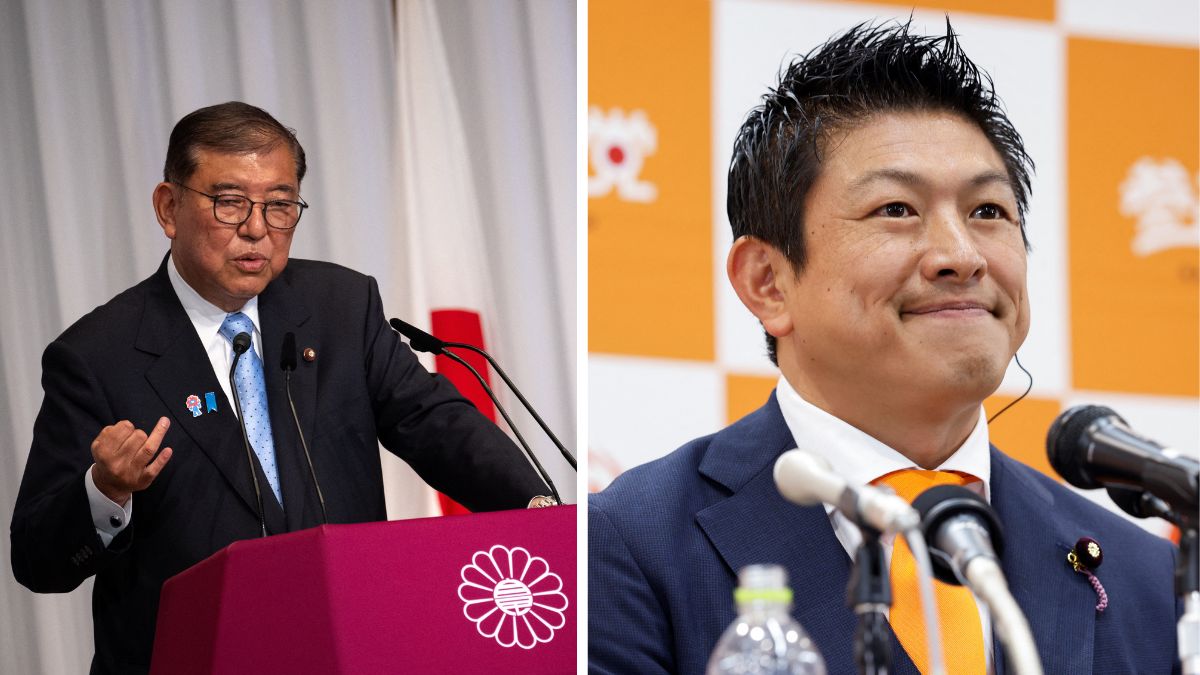Japan First: How a political party created on YouTube by a supermarket manager overturned the LDP majority

Sanseito, Japan's right-wing populist party, has emerged as a winner in the recent election, as the party gained 14 seats in the Upper House. The election has taken place just nine months after Prime Minister Shigeru Ishiba of the Liberal Democratic Party (LDP) took office. The ruling coalition has now lost its majority in the Upper House, a defeat that could result in the Prime Minister’s resignation.
The loss has come as Japan’s new, right-wing populist groups have made progress in a country that has increasingly become more anti-immigrant amidst a tirade of problems such as rising prices, tariff talks with the US, and the ageing population.
About two-thirds of the 124 seats available went to freshly formed parties that drew in young nationalist voters. Two of them were the Democratic Party for the People and Sanseito, the populist party inspired by US President Donald Trump. While it may not seem like much, Sanseito has a total of 15 seats in the upper house now.
Sanseito and its internet origins
Sanseito rose overnight, with populist appeals to strengthen the military and cut consumption tax, which supports Japan’s ageing population of retirees, and promised young voters to put “ Japan First.”
The party has unusual origins, as party leader Sohei Kamiya founded the group in 2020 by gathering supporters on YouTube. Kamiya had worked several jobs before involving himself in politics, including working as a supermarket manager and a high school teacher.
Gradually, Kamiya's party began winning the local assemblies. He said in a speech that the party “was formed with the idea that each and every citizen could change Japan by simply looking at the Internet.”
He said, “Our appeal and catchphrase for this election is 'Japanese people first.' We will protect the lives of Japanese people by focusing on proactive fiscal policy, childcare support, and maintaining public order. The Party for the Upper House will pursue politics based on people-centred sovereignty."
The YouTube channel gained traction during the COVID pandemic and for spreading conspiracy theories about the vaccinations, according to Reuters.
The party became known for its 'Japanese First' campaign before the Upper House election and focused on complaints about overtourism and the rise in foreign residents in the country.
According to Michael Cucek, a professor of politics and international relations at the Tokyo campus of Temple University, who spoke to DW, the anti-foreigner sentiment was created by unruly tourists causing mayhem on the quiet streets of Kyoto and traditional towns. About 3 per cent of the country’s total 120 million people are foreign residents.
Kamiya says that "Japan should not rely on foreign workers," and that relying on them would harm Japanese wages in a sentiment that resembles that of other far right groups such as the MAGA movement, and the Alternative for Germany Party.
Kamiya’s party has also been pushing for stronger security measures, anti-espionage laws, tax cuts, renewable energy and a health system that does not rely on vaccines.
What will happen to Ishiba?
Shigeru Ishiba has now lost both the Upper and Lower houses and is facing calls to resign. However, he is likely to continue for now due to the upcoming tariff negotiation with the United States.
“Whether it’s the tariff negotiations with Mr. Trump or disasters and the ageing population or prices rising faster than wages, we still face many issues,” Mr. Ishiba said. “I have a responsibility to the nation to deal with these.”
Hanako Ohmura, a professor at Kyoto University specialising in public opinion and voting behaviour, told the Japan Times that “Parties like Sanseito and the DPP have functioned as vessels for that anti-LDP sentiment.”
Experts believe that the public has been let down by the government’s response to various issues, including the rising prices. The opposition has appealed to the voters by proposing tax cuts as opposed to the ruling party’s cash handout proposal.
World